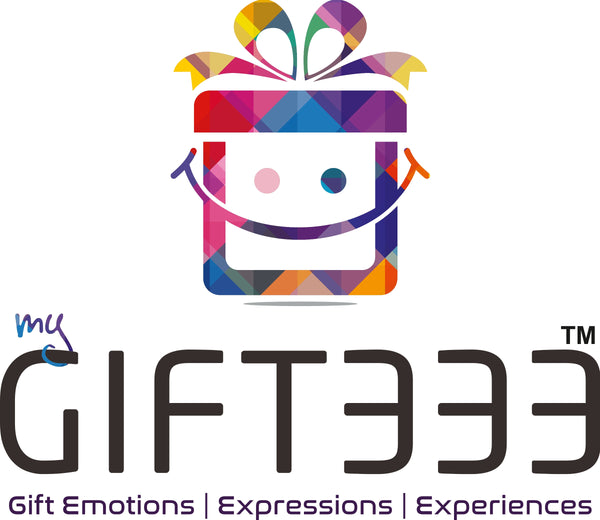Personalized gifts have become increasingly popular in recent years, offering a unique and thoughtful way to show appreciation or celebrate special occasions. From customized jewelry to engraved home decor, personalized gifts add a personal touch that sets them apart from traditional presents. In this article, we will explore 33 insightful statistics about personalized gifts, shedding light on their growing significance in today's gift-giving landscape.
Definition of Personalized Gifts
Personalized gifts are items that are customized with individual names, initials, or unique messages, tailoring them specifically to the recipient. By adding a personal touch, these gifts create a deeper emotional connection and make the recipient feel valued and special.
Growing Popularity of Personalized Gifts
Over the past decade, the demand for personalized gifts has experienced tremendous growth. According to market research, the global personalized gifts market is projected to reach $31.63 billion by 2025, with a compound annual growth rate of 9.5%. This surge in popularity can be attributed to several factors.
Importance of Personalization in Gift Giving
Personalization adds significant value to gift-giving. It allows the giver to demonstrate thoughtfulness and consideration, making the recipient feel cherished and understood. Studies have shown that personalized gifts are more likely to be cherished and remembered, creating a lasting impression.
Statistics on Personalized Gift Purchases
- 65% of consumers have purchased personalized gifts in the last year.
- 80% of consumers believe that personalized gifts are more thoughtful than non-personalized ones.
- 42% of consumers plan to purchase more personalized gifts in the future.
Top Personalized Gift Categories
The popularity of personalized gifts spans various categories, including:
- Jewelry: Customized necklaces, bracelets, and rings.
- Home Decor: Engraved picture frames, personalized wall art, and monogrammed towels.
-
Clothing and Accessories: Embroidered hats, personalized bags, and monogrammed shirts.
d. Tech Gadgets: Customized phone cases, engraved smartwatches, and personalized USB drives.
Benefits of Personalized Gifts
Personalized gifts offer numerous benefits that contribute to their appeal:
- Emotional Connection: The customization creates a deeper emotional connection between the giver and recipient.
- Uniqueness: Personalized gifts stand out from generic presents, showcasing thoughtfulness and effort.
- Memorable: They leave a lasting impression and are more likely to be remembered by the recipient.
- Versatility: Personalized gifts can be tailored for various occasions, making them suitable for birthdays, weddings, anniversaries, and more.
Impact of Personalization on Customer Satisfaction
Studies have found that personalization significantly influences customer satisfaction:
- 80% of consumers are more likely to make a repeat purchase when their experience was personalized.
- Personalization can lead to a 20% increase in customer satisfaction scores.
Personalized Gifts for Different Occasions
Personalized gifts are versatile and can be tailored to various occasions, such as:
- Birthdays: Customized jewelry, engraved watches, and personalized photo albums.
- Weddings: Monogrammed towels, personalized champagne flutes, and engraved cutting boards.
-
Anniversaries: Personalized wall art, engraved jewelry, and custom-made photo collages.
d. Graduations: Personalized pens, engraved keychains, and customized keepsake boxes.
Personalization Trends in the Gift Industry
The gift industry continuously evolves, and personalization trends reflect changing consumer preferences. Some current trends include:
- Photo-Based Gifts: Personalized mugs, photo blankets, and custom calendars featuring cherished memories.
- Customized Experiences: Personalized travel packages, tailored spa days, and unique adventure vouchers.
-
Personalized Subscription Boxes: Curated boxes with personalized products based on individual preferences.
d. Personalized Digital Gifts: Customized e-books, personalized playlists, and virtual experiences.
Challenges in Creating Personalized Gifts
While personalized gifts offer numerous benefits, there are challenges associated with their creation:
- Time and Effort: Personalizing gifts requires additional time and effort compared to purchasing ready-made presents.
-
Quality Control: Ensuring the quality of customized items and accurate personalization can be challenging.
c. Limited Production Capacity: Some personalized gift suppliers may have restrictions on the number of items they can create.
Tips for Choosing and Creating Personalized Gifts
When selecting or creating personalized gifts, consider the following tips:
- Know the Recipient: Understand their preferences, interests, and hobbies to create a meaningful gift.
- Focus on Quality: Choose high-quality items that will stand the test of time.
-
Be Mindful of Personalization: Double-check names, initials, and messages for accuracy before finalizing the order.
d. Consider Presentation: Pay attention to packaging and presentation, as it adds to the overall gift experience.
Personalized Gifts in the Corporate World
Personalized gifts have also gained traction in the corporate world:
- Employee Recognition: Customized awards, engraved plaques, and personalized desk accessories.
-
Client Appreciation: Branded gifts with personalized touches, such as monogrammed pens or embossed portfolios.
c. Business Events: Personalized swag bags, custom event invitations, and branded promotional items.
Case Studies: Successful Personalized Gift Campaigns
Several companies have achieved success through personalized gift campaigns:
- Coca-Cola's "Share a Coke" Campaign: Personalized bottles with individual names boosted sales by 2.5% in the U.S.
-
Nike's Customization Options: Allowing customers to design their own sneakers increased sales and customer engagement.
c. Starbucks' Personalized Rewards Program: Tailored offers and personalized recommendations enhanced customer loyalty.
Future of Personalized Gifts
The future of personalized gifts looks promising, driven by advancements in technology and changing consumer expectations. With the rise of 3D printing, customization options will become even more diverse and accessible, allowing for the creation of unique, personalized gifts.
Conclusion
Personalized gifts have captured the hearts of gift-givers and recipients alike. They offer a meaningful way to celebrate special occasions, strengthen relationships, and leave a lasting impression. As the demand for personalized gifts continues to grow, it's essential for individuals and businesses to recognize their value and explore the endless possibilities they offer.
